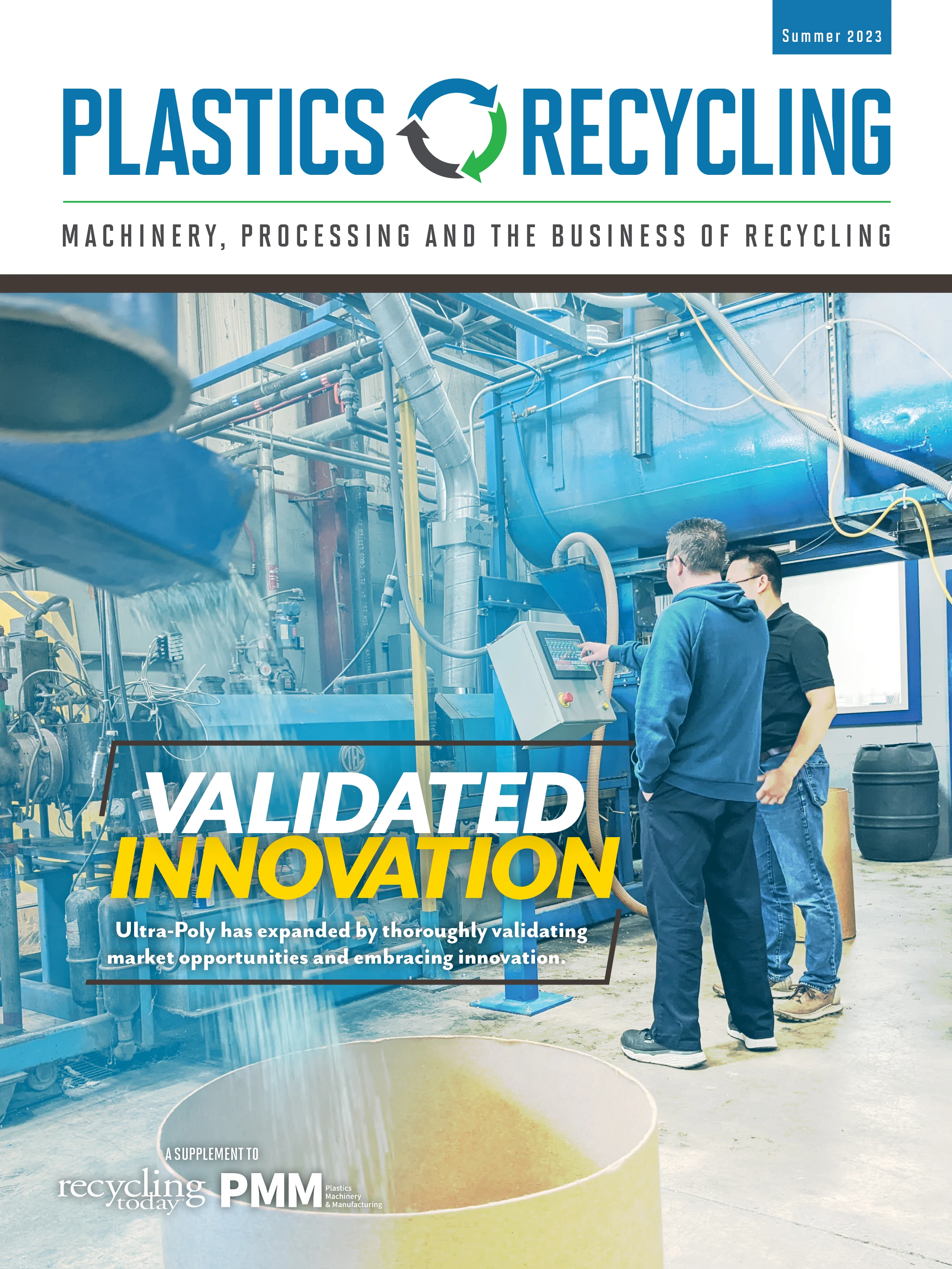
Jon Timbers began his career in the plastics industry as a production engineer and worked at five different polymer facilities for Midland, Michigan-based Dow Chemical Co. in seven years.
“It was a great way to start a career because I had early exposure to several different technologies,” he says.
Timbers spent eight years as plant manager for Americas Styrenics’ (AmSty’s) polystyrene plant in Joliet, Illinois, before becoming director of innovation and sustainability at AmSty in 2016. In that role, he helped launch Regenyx, the Tigard, Oregon, advanced recycling joint venture between AmSty and Agilyx. Since 2021, Timbers has served as the chief sustainability officer at Epsilyte.
He shares his perspective on sustainability and hard-to-recycle plastics.
Q: How have you seen plastics recycling change over the years?
A: Recycled content used to be a cost reduction; now, using recycled content creates differentiated (and often branded) products that are in high demand by the market. This is an important change because when recycled content was just about reducing cost, that mindset restricted the possibilities.
Q: What lessons have you learned about the industry?
A: The hardest part of the circular economy is circular relationships. The traditional model is only having relationships with your upstream suppliers and your downstream customers. You must expand on that and have relationships up and down the entire value chain.
Q: What was the hardest part of moving into a sustainability role from manufacturing?
A: When you work in manufacturing, the majority of your professional interactions are with people who also work for the same company. In that environment, you mostly share common goals.
In sustainability, you often work with people outside your company. It’s a much different starting point for relationships and collaboration. You need to find common ground ... and a mutual understanding of what value can be created. That mutually beneficial common ground can be harder to find but even more exciting, valuable and innovative when you do find it.
Q: What role will innovation play in addressing hard-to-recycle plastics? What form is this innovation most likely to take?
A: Hard-to-recycle plastics are not a monolith. This is a category that includes challenges of all types (logistics, chemistry, volume, etc.)
Where commonly recycled plastics like PET and HDPE may only need capital investment and policy improvements, hard-to-recycle plastics require innovation.
For example, Epsilyte makes expandable polystyrene (EPS). We now include our EVRgreen biodegradable technology in all products designed for nondurable applications. This is an enzymatic biodegradable technology. It does not affect recyclability, but it does give our EPS a new end-of-life option.
I think in the future we will see hard-to-recycle plastics migrate toward applications where their unique properties are truly required. EPS is another good example. Over the last 20 years, it has been used more in insulation and less in food service. … [The] benefit of EPS in building insulation is that it saves 36 times more operational carbon over 50 years than it has embodied carbon.
Q: What misperceptions about plastics recycling would you debunk?
A: The myth I would like to debunk is that we can recycle our way out of the plastic waste crisis because we can’t.

Explore the Summer 2023 Plastics Recycling Issue
Check out more from this issue and find your next story to read.
Latest from Recycling Today
- Aqua Metals secures $1.5M loan, reports operational strides
- AF&PA urges veto of NY bill
- Aluminum Association includes recycling among 2025 policy priorities
- AISI applauds waterways spending bill
- Lux Research questions hydrogen’s transportation role
- Sonoco selling thermoformed, flexible packaging business to Toppan for $1.8B
- ReMA offers Superfund informational reports
- Hyster-Yale commits to US production





